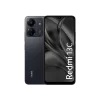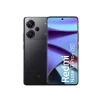 Telecel and ZimSwitch today (Thursday) announced that they had teamed up to enable banks to offer their customers an affordable and easy-to-use mobile banking facility that could change the face of banking in Zimbabwe.
Telecel and ZimSwitch today (Thursday) announced that they had teamed up to enable banks to offer their customers an affordable and easy-to-use mobile banking facility that could change the face of banking in Zimbabwe.
They told journalists at a press conference in Harare that this should benefit not only banks’ existing customers but people who previously have had no bank account, including those in rural areas, who could now register easily for mobile banking, enabling them to use their cellphone to transfer or send money to other people, to deposit and withdraw money and to pay for goods and services.
The press conference was also attended by executives from CABS, the People’s Own Savings Bank and Interfin Bank, which are the first three banking institutions going live with their mobile banking services.
ZimSwitch business development manager Adam Roscoe said another eight banking institutions were expected to go live with their mobile banking service within the next two months.
CABS, POSB and Interfin together account for about half the number of individuals with bank accounts, the press conference was told. By the end of the year it was expected that about 85 percent of people with bank accounts would have access to mobile banking through ZimSwitch.
Telecel is providing the mobile banking platform. ZimSwitch is providing the link or switch between banks, in the same way it has done in the past to enable customers of different banks to make use of each other’s automated teller machines (ATMs) and point of sale (POS) terminals.
Mobile banking customers will be able to deposit money into and withdraw money from their accounts at any bank or bank agency where a ZimSwitch Ready logo is displayed. Such agencies could include post offices, supermarkets and stores.
Money can be sent instantly through the cellphone to anyone else with a cellphone, regardless of the recipient’s cellphone network. The recipient receives notification on the cellphone of the amount transferred and a transaction reference number. The sender then contacts the recipient with a secret code.
The recipient just has to go to the nearest outlet with a ZimSwitch Ready sign, provide the information given in the money transfer message and the secret code, produce an identity card and receive the money.
Money can also be transferred to a person’s bank account with a ZimSwitch Ready financial institution.
The money transfers are instant. This transfer ZimSwitch has named a ZIPIT. Cabs, which is the first ZimSwitch member to go live, having launched its mobile banking last week, is calling its service and transfers texta-cash.
“ZIPIT means you can send money instantly to any ZimSwitch Ready institution or any cellphone, no matter on which network it is. When I say ZIPIT can send money instantly I mean instantly. The second you have finished the transmission on your cellphone the money is reflected on the recipient’s account,” Mr Roscoe said.
Telecel Zimbabwe marketing director Obert Mandimika said Telecel was proud to have been the first mobile phone network in Zimbabwe to have made a mobile banking platform available to the country’s banks and to ZimSwitch. He said Telecel’s collaboration with ZimSwitch was the first such partnership in the world between a mobile phone operator and a financial switch.
Mr Roscoe said the mobile banking concept shared by Telecel ZimSwitch and ZimSwitch member financial institutions was to provide mobile banking at a minimal cost. Banking institutions, by cooperating and making use of ZimSwitch, were able to offer the service at a low cost.
CABS managing director Kevin Terry reiterated this and the importance of making banking services available in this way to people who have not previously held bank accounts.
“The use of mobile phone technology enables there to be a much greater financial inclusion,” he said, echoing what Mr Mandimika had said earlier about Telecel believing in financial inclusion, including as many people as possible among those with bank accounts.
“People are not unbanked because they want to be,” Mr Terry said. “They are unbanked because they either have no access to a bank or cannot afford to open an account.”
The mobile banking service makes it possible to engage in banking activities even when there is no bank nearby and to do so at minimal cost. Registering for mobile banking is simple. A Telecel line and identity card is the basic requirement.
“The platform is open to all banks. Telecel has chosen to facilitate the provisioning of this extremely useful service through its fast expanding network,” Mr Mandimika said, adding that Telecel already covered all major population centres with its network and was embarking on a massive investment drive to cover the last rural outposts that were not yet covered.
Mr Roscoe and Mr Terry paid tribute to Telecel’s foresight and vision in establishing its mobile banking platform.
“We had discussions with all three mobile networks but only Telecel has really been listening to us,” Mr Terry said.
Asked how this mobile banking platform compared with Ecocash, which was recently launched by Econet, Mr Terry said Ecocash was a closed network. Money that was sent could only be accessed from an Ecocash outlet. Money could not be sent instantly to another person’s bank account.
Interfin Bank head of marketing Palmer Mugavha said the partnership between Telecel, ZimSwitch and banking institutions made use of the core competencies of the different partners.
Telecel’s expertise was in providing the mobile banking platform. ZimSwitch’s expertise was in linking financial institutions. The banking institutions’ expertise was in providing banking services and cash.
By pooling their resources, the various banks were able to offer a mobile banking service at a low cost.
Mr Terry said CABS had established 100 agencies countrywide and was rolling out new agencies at the rate of about 30 a month. He pointed out, however, that appointing agents required care, as they had to have the capacity to provide cash and to be capable of being trusted with the bank’s and customers’ cash.
He said that the different ZimSwitch members were cooperating with one another through ZimSwtich and sharing facilities, which meant customers would have a large range of ZimSwitch Ready outlets at which they could deposit and withdraw money.
However, they would also be competing with one another, which meant there would be variations in the prices charged by different financial institutions.
POSB public relations manager Simukai Mutamangira said POSB had a long history. It was celebrating its 106th year in banking this year. It had over the years moved from its green savings book to offering money market transactions to its latest move of collaborating with Telecel and ZimSwitch to bring mobile services to its customers.





10 comments
Good article mr editor, but you left the most important thing ….costs involved!!!!
still just a press release for not @2a668a0814adfbace96b913980fe2326:disqus will do our own article eventually
thanx Kabweza
so far so good! What are the charges?
econet?
I’m glad this is happening, I remember at BarCamp speaking to guys about Zimswitch and why haven’t they done anything yet considering they already have the network between banks. Just glad it is being done and hopefully with enough competition between telecel and econet the charges will be revised down to realistic figures that just about everyone can afford, and not because you have the monopoly you charge what you want.
Competition is healthy for everyone, it keeps you on your toes!
To me this looks more sensible as I can be able to keep my money in my bank and use my fone to transact. If making a bank transfer is as instant as they say it is, then I’ll definitely be buying my Telecel line soon. Let the games begin!